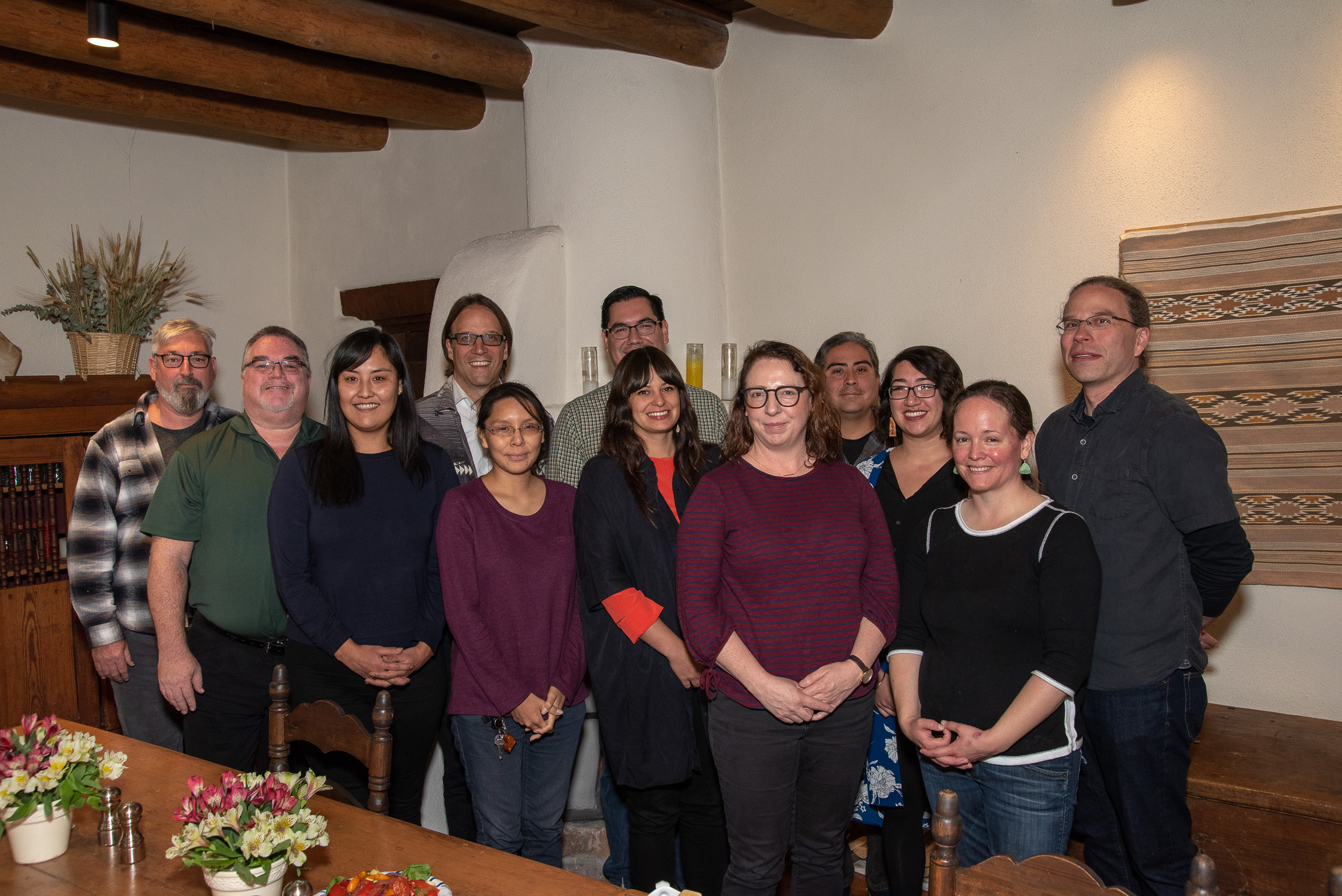
Keywords for an Indigenized Sound Studies
Co-chaired by Jessica Bissett Perea and Trevor G. Reed
November 12–13, 2018
Keywords for an Indigenized Sound Studies
Keywords for an Indigenized Sound Studies aimed to cultivate a more indigenized sound studies and a more sounded Indigenous studies. This aim necessarily draws from and intersects with work being done in the fields of anthropology, Native American and Indigenous studies, and music and sound studies.
To indigenize music and sound studies, seminarians reframed the types of questions asked, methods used, and analyses produced in ways that will yield community-based research with, by, and for the people from whence music and sound traditions come. The central ambition of this project was to develop methodological and theoretical entry points for decolonizing research in service to Indigenous communities across what are often complex disciplinary boundaries.
To sound Indigenous studies research, seminarians focused on the aural significance and dynamism of world views, cosmologies, and sociocultural formations. Moreover, the project’s name gestured toward an opening of the range of people and practices under consideration; for example, the term Indigenous accounts for a broad spectrum of identifications across the Americas, from the specific (e.g., Dena’ina, Hopi, Ts’msyen, Stó:lō, Mescalero Apache, and Kĩsêdjê) to the more general (e.g., Native American, American Indian, First Nations, and Inuit). The seminar focused on sound studies to better account for the ways in which seminarians’ research brings together and keeps apart music studies’ preoccupation with performance practices (style, repertoire, and aesthetics) and Native American studies’ advancement of difference-based politics (presence, representation, and decolonization).
Key discussion points included the following:
- Sound is a domain of Indigenous knowledge, not simply a phenomemon from which knowledge is derived or through which meaning is generated.
- Indigenous songs are often tools or processes that act on people, the environment, and beyond.
- Key differences between hearing and listening to sound (particularly differences in intentionality) map onto current disciplinary methodologies and the approach necessary to do work with, by, and for Indigenous peoples.
- The forms, purposes, and canons of musical ethnography that have emerged to date are saturated with colonialism.
- The study of Indigenous sound necessitates a break: a renaming and a degree of epistemic disobedience or resistance to current power structures and trends in the fields within which participants were trained.
The seminar concluded with the participants agreeing on the need for new multivocal edited volume exploring theory at the intersection of Native American/Indigenous studies and music/sound studies. Topics might include frame-switching, or moving between multiple modes of experiencing sound; sound-based forms of connectedness, including connections of people to land; interdependent forms of sonic ownership, as opposed to the individualistic modes espoused by property-based structures; sound and self-determination, or exploring relationships between sound production and Indigenous rights; and intersections of racism and colonialism in sound. Chapters addressing these topics will be drafted collaboratively and assembled over the next year. In addition, participants plan to publicly share their preliminary work on several of these topics at the Native American and Indigenous Studies Association annual meeting in New Zealand in June 2019 and at future public-facing events.
Jessica Bissett Perea, Chair
Assistant Professor, Native American Studies, UC Davis
Trevor G. Reed, Chair
JD/PhD Candidate, Columbia Law School/Music Department, Columbia GSAS, Columbia University
Raven Chacon
Composer, Performer and Installation Artist
Keola Donaghy
Associate Professor of Music Studies, University of Hawaii – Maui
Stephen Fox
Adjunct Faculty of Music Studies, and Lecturer in Psychology, University of Hawaii – Maui
Robin Gray
Assistant Professor, Department of Sociology, University of Toronto
Chad Hamill
Vice President of the Office of Native American Initiatives, and Associate Professor, Department of Applied Indigenous Studies, Northern Arizona University
Candice Hopkins
Curator, Writer and Researcher
Sunaina Keonaona Kale
PhD Candidate, Department of Ethnomusicology. University of California – Santa Barbara
John-Carlos Perea
Associate Professor, Department of American Indian Studies, San Francisco State University
Amber Ridington
Project Development Manager, Digital Books in Indigenous Studies, UBC Press
Renata Yazzie
Graduate Student, Department of Music, University of New Mexico
Generous Funding Provided by the Mill Foundation